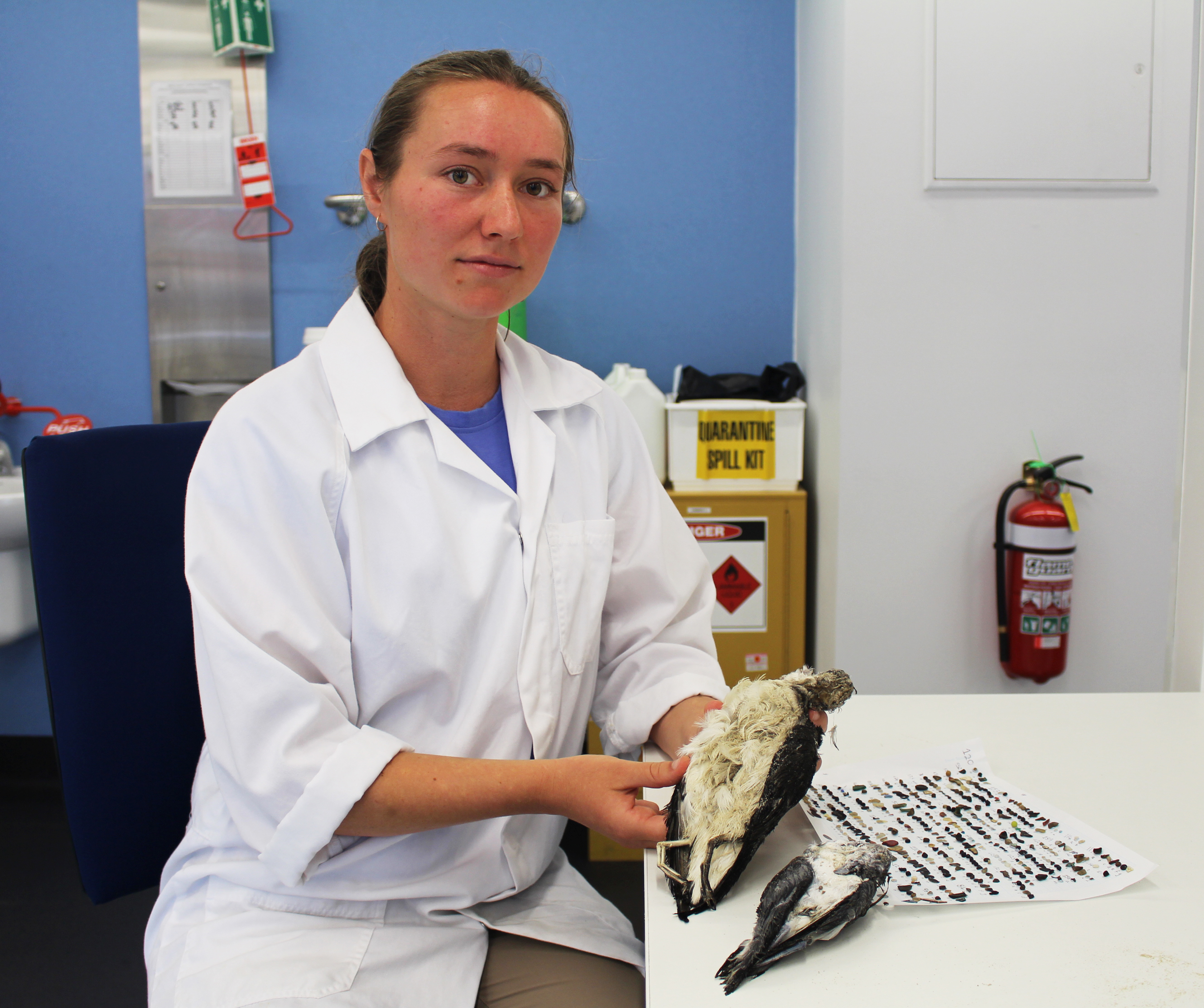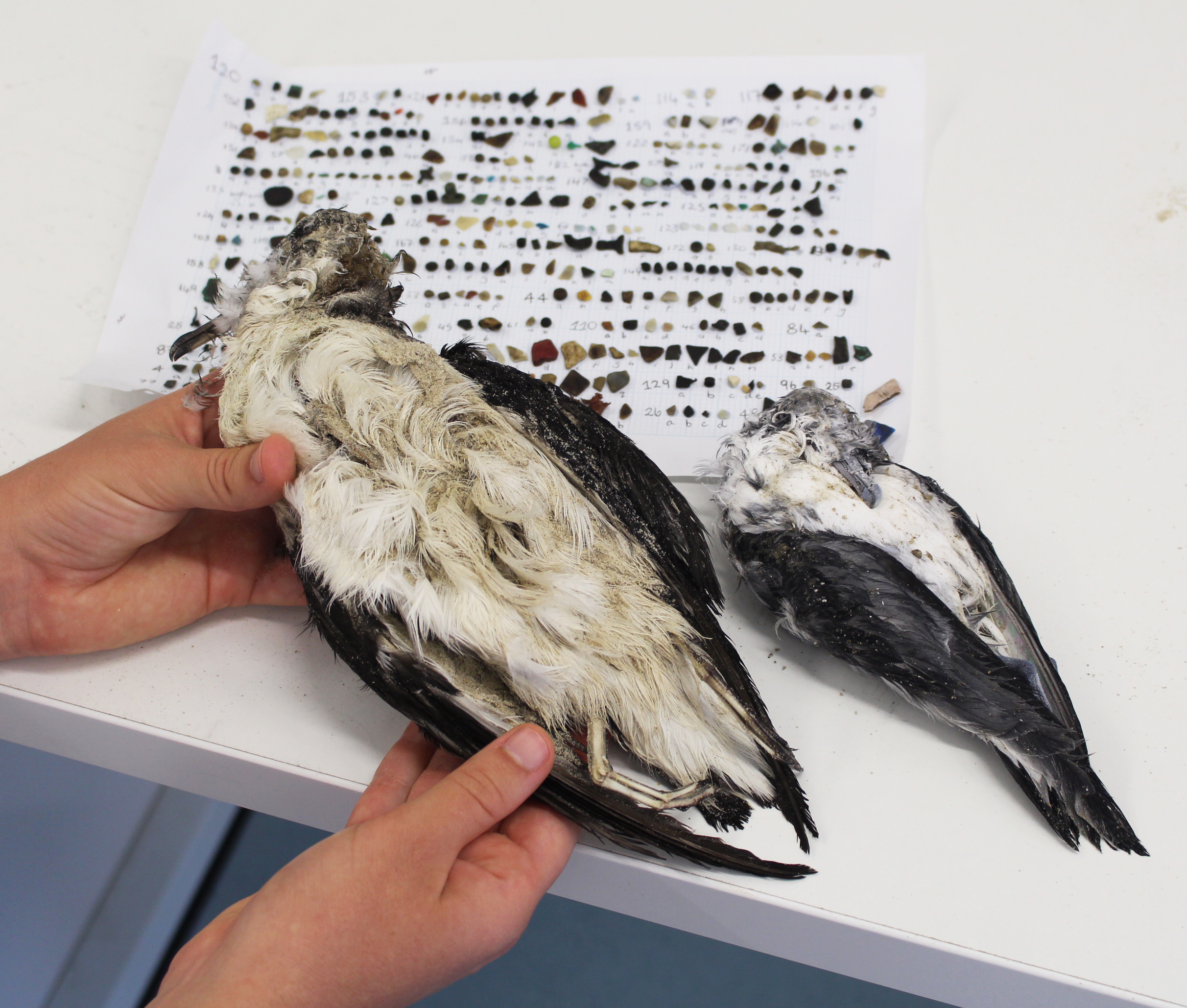
With awareness growing across the community about the threat that plastic in our oceans poses to wildlife, an IMAS researcher has an unusual request for Tasmanians – please report dead seabirds that you see washed up on the beach.
As part of her PhD research, Lauren Roman (pictured) is studying the impact on seabirds of plastics and other marine debris that they ingest.
Lauren needs to collect dead seabirds to study their stomach contents, preferably before scavengers get there first.
 She's started a Facebook page - https://www.facebook.com/seabirdsdebris
- to spread the word about her search, and has already had a positive response.
She's started a Facebook page - https://www.facebook.com/seabirdsdebris
- to spread the word about her search, and has already had a positive response.
"With the sightings that have been reported so far I'm adding to existing databases of bird mortalities as well as collecting bird bodies where they fit the species I'm studying and are in a useable condition.
"But I can't patrol all the local beaches all the time and need to find birds that have washed up before the gulls start scavenging.
"If you see a dead seabird in the Hobart area, or multiple birds beach-wrecked anywhere in Tasmania, please report it on the Facebook page with information about its species, location and, if possible, a photo so that I can collect the bird if it's appropriate for the study."
The seabirds Lauren is studying include shearwaters, prions,
petrels and albatross, and she's already amassed a large collection of plastic recovered
from dead birds.
In recent weeks Lauren's been measuring plastic ingested by short-tailed shearwaters, Australia's most abundant seabird.
Previously shearwaters have been found with up to 17 pieces of plastic in their gizzards (the photo at right shows plastic fragments recovered from dead seabirds) and it's believed that most individuals of the species have ingested plastic and still carry it in their digestive systems.
While proving what caused the death of any particular bird is problematic, plastic is known to block the digestive system of seabirds, leading to starvation or death.